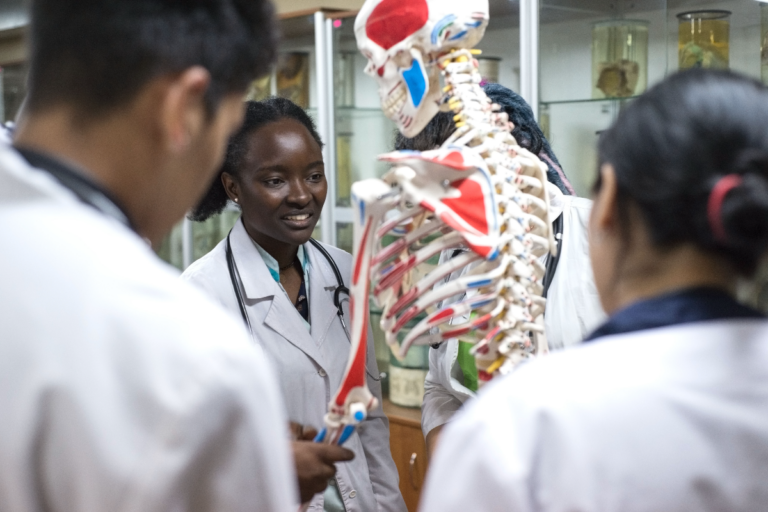
Healthcare News and Policy
The National Health Service Corps creates a win-win for doctors and underserved communities by financing medical education and bringing health care to those who need it most.
Written by: Christina Crisologo
Published on: February 25, 2014

Medical
Your actions as a physician have a tremendous impact on your patients.
Written by: Mary Calhoun
Published on: February 20, 2014

MCAT
Tips from the MCAT authorities to make your test registration as easy as possible.
Written by: AAMC Staff
Published on: February 6, 2014

Medical
A look at the pros and cons of choosing an academic career over a clinical medical career.
Written by: John F. Hunt, MD
Published on: February 4, 2014

Medical School
Advice from a fourth year medical student on how to live and study well in medical school.
Written by: Megan Riddle
Published on: February 2, 2014

Medical School
The number of North American students attending European medical schools is increasing, but studying medicine in Europe is not without its challenges.
Written by: Student Doctor Network
Published on: January 23, 2014

Pre-Medical
A recent admit offers five tips to help you do your best at medical school interviews.
Written by: InGenius Prep
Published on: January 7, 2014

Pre-Medical
Six mistakes to avoid in a medical school interview.
Written by: InGenius Prep
Published on: December 22, 2013

Healthcare News and Policy
An American medical student compares his experience with the German health care system to health care in the U.S.
Written by: Andrew Nguyen
Published on: December 19, 2013

Physician Q&A
Diana Marie Padgett shares her thoughts on the field of pathology and offers some advice for students.
Written by: Juliet Farmer
Published on: December 17, 2013

Medical School
There is one thing no one ever tells you before starting medical school.
Written by: Hammad Moses Khan
Published on: December 12, 2013
Pre-Medical
Each page of your application is precious. You have the opportunity to sell a compelling narrative...
Written by: InGenius Prep
Published on: October 11, 2013
Pre-Health
“Dear Mr. [Last name], We regret to inform you….” Brutal. I wasn’t quite rejected. I had gotten the deferral-letter-of-death.
Written by: InGenius Prep
Published on: October 3, 2013

Medical School
Should foreign medical school be such a foreign idea?
Written by: Sherry Gray
Published on: September 1, 2013
Medical School
Is working during school a good idea?
Written by: Joseph Love
Published on: August 14, 2013
Pre-Health
Answering a common but challenging interview question.
Written by: Rajani Katta and Samir Desai
Published on: July 17, 2013
Medical
What does Street Medicine mean for patients and health care providers?
Written by: Andrew Nguyen
Published on: July 10, 2013

Pre-Medical
How to write a winning personal statement.
Written by: Joseph Love
Published on: June 6, 2013

Pre-Medical
How to write a winning personal statement.
Written by: Joseph Love
Published on: June 4, 2013












